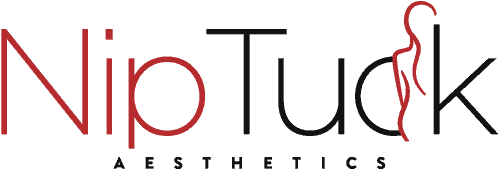After Liposuction, focusing on nutrient-dense foods is crucial for supporting healing, reducing inflammation, and maintaining results. Prioritize lean proteins like chicken and fish, along with plenty of fruits and vegetables. Incorporate whole grains and healthy fats into your meals, and stay hydrated by drinking at least 64 ounces of water daily.
Avoid processed foods, alcohol, and excessive salt or sugar. Planning your meals and making smart choices when dining out will help establish sustainable dietary habits. By following these guidelines, you’ll be well on your way to a successful recovery and long-lasting results.
Hydration Essentials
Proper hydration is essential for reducing swelling and promoting healing after your procedure. Drink at least 64 ounces of water daily to support your recovery. Hydration helps maintain metabolism, flush out toxins, and can prevent complications.
While water is the best choice, you can also include mineral water, unsweetened fruit juices, and herbal teas in your routine. To ensure you’re staying hydrated, keep a water bottle with you, set reminders on your phone, or use a hydration tracking app.
Foods to Embrace
To support healing and recovery, focus on nutrient-rich foods. Here are some of the best options for your post-surgery diet:
- Protein-Rich Options: Lean meats such as white meat chicken, turkey, and fish like salmon are excellent choices. These proteins provide vital nutrients for wound healing and tissue repair. For plant-based diets, tofu is an outstanding alternative that’s easy to incorporate into various dishes.
- Fruits and Vegetables: Incorporate plenty of fruits and vegetables into your meals. Leafy greens, strawberries, bananas, and pineapples are particularly beneficial, offering vitamins and minerals that boost your immune system. Berries like blueberries and raspberries provide vitamin C, supporting your immune system and aiding in wound healing. Citrus fruits such as oranges and grapefruits also offer vitamin C and help flush out toxins.
- Whole Grains and Fiber: Whole grains like brown rice, quinoa, and oats are packed with fiber, aiding digestion and reducing inflammation. Fiber helps you feel fuller for longer, which can prevent overeating and support weight management. It also helps regulate blood sugar levels, providing steady energy throughout your recovery.
- Healthy Fats: Healthy fats play a pivotal role in recovery. Omega-3 fatty acids from sources like fish, flaxseeds, and walnuts can aid in wound healing and reduce swelling. Monounsaturated fats from avocados, olive oil, and nuts support healing and maintain healthy cholesterol levels. Medium-chain triglycerides (MCTs) from coconut oil can boost metabolism and help with weight management.
Foods to Avoid
While beneficial foods support recovery, it’s just as crucial to avoid items that can hinder the healing process:
- Alcoholic Beverages: Alcohol can lead to dehydration, counteracting healing efforts. Focus on increasing your water intake to stay hydrated.
- Processed Foods: High-sodium, sugary, and fatty processed foods can increase swelling and inflammation. Opt for whole foods like fruits and vegetables instead.
- Salty and Sugary Foods: Limit foods high in salt or sugar, as salt can contribute to swelling and sugar may lead to weight gain.
- High Saturated Fat: Foods rich in saturated fats can impair healing. Choose lean protein sources and healthy fats for optimal recovery.
Meal Planning Tips and Dining Out Strategies
Maintaining a healthy diet after liposuction is pivotal for your recovery and long-term results. Consider these practical tips:
- Smaller Meals: Plan for smaller meals throughout the day to maintain stable blood sugar levels and consistent energy.
- Nutrient-Dense Foods: Incorporate lean proteins, fresh fruits and vegetables, and whole grains into your diet. These foods provide essential nutrients for recovery.
- Hydration: Drink plenty of water throughout the day to flush out toxins and reduce inflammation.
- Probiotics: Include probiotic-rich foods to support digestive health during recovery.
When dining out, choose restaurants with fresh, healthy menu options. Opt for grilled, baked, or steamed proteins rather than fried or breaded items. Request sauces and dressings on the side, and substitute side salads or vegetables for fries. Avoid alcoholic beverages and focus on staying hydrated with water.
Long-Term Dietary Habits
For long-term success in maintaining your results, establish healthy dietary habits that become second nature:
- Balanced Diet: Focus on a diet rich in lean proteins, fresh produce, and whole grains. Reduce intake of processed foods, sugary drinks, and excess salt.
- Hydration: Continue drinking plenty of water and limit alcohol consumption.
- Portion Control and Exercise: Adopt habits like portion control and regular exercise to preserve your liposuction results and improve overall well-being. Small, consistent changes can lead to significant long-term success.
Schedule a Free Consultation
At Nip Tuck Aesthetics in Miami, FL, we understand the importance of proper post-operative care, including nutrition, to maximize your liposuction results. Contact Nip Tuck Aesthetics today to book your consultation and take the first step towards a more confident you. Our experienced team is ready to guide you through every stage of your cosmetic surgery journey.



